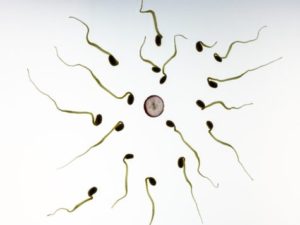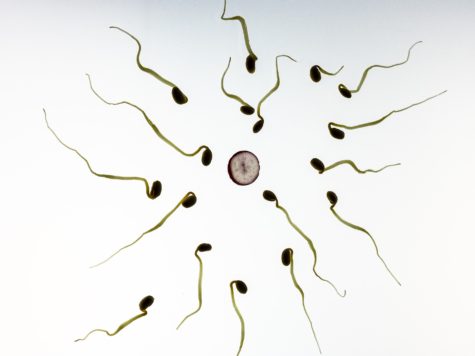OXFORD — A new study has further confirmed research showing that fathers can affect the sex of their children.
The study, led by Aurelio Malo of Oxford University, showed a relationship between genetic quality of white-footed mouse males and the number of male or female offspring they had.

“In mammals, theory predicts that offspring sex ratios can only be determined by the mother, as fathers have always been thought to inseminate an equal proportion of X and Y sperm, having a random effect on offspring sex that they could not shift from equality, or 50:50,” says Malo in a press release.
The researchers explained their study showed that the mouse male’s genetic quality affected the size of sperm nuclei, and thereby the proportion of X to Y sperm.
“Fathers with higher genetic quality produce sperm with smaller head nuclei – a higher proportion of Y sperm – and go on to produce more sons than daughters,” explains Malo, adding that he study has helped “open the gates of a new research area.”
Moreover, he believes the findings of older research has actually held researchers back from making new advances on the matter.
“The long-held expectation that fathers would inseminate the same proportion of X and Y sperm generated at meiosis has stopped scientists from exploring paternal effects in other mammals,” he says.
Still, some scientists had already found some information pointing toward such paternal influence in earlier studies.
For example, a 1995 study on the offspring of birds and mammals suggested that a father’s hormone levels can affect the sex ratio of sperm.
In that study, author Sven Krackow writes that “several recent findings in reproductive biology are suggestive of many potential pathways by which gonadotropins and steroid hormones could interfere with the sex ratio at birth.”
In another example, Corry Gellatly, a research scientist at Newcastle University, showed in a 2008 study that men seem to inherit a tendency to have more sons or more daughters from their parents.
In that study, published in the journal Evolutionary Biology, Gellatly studied some 927 family trees containing information on 556,387 people from North America and Europe going back to 1600.
“The family tree study showed that whether you’re likely to have a boy or a girl is inherited. We now know that men are more likely to have sons if they have more brothers but are more likely to have daughters if they have more sisters,” said Gellatly in a press release at the time. “However, in women, you just can’t predict it.”
Explaining the potential importance of investigating paternal effects on sex ratio, Malo says such research could help save endangered species or manipulate livestock for economic reasons.
‘In a nutshell we now know that dads, as well as mums, can alter the sex of their offspring,” he says. “And that the ability to do so might have evolved through natural selection.”
The study’s findings were published in the journal Proceedings of The Royal Society B.

Comments
Comments are closed.